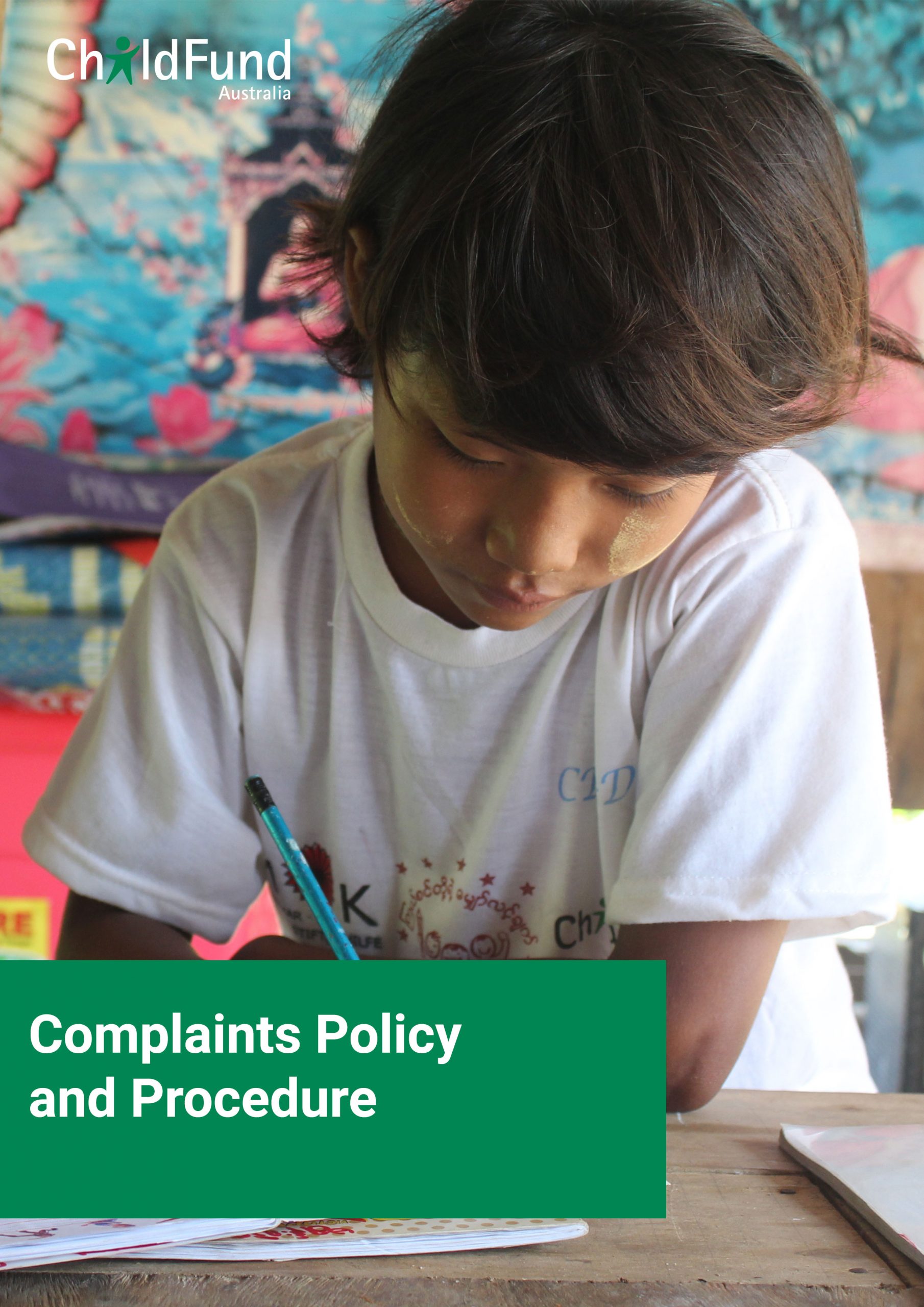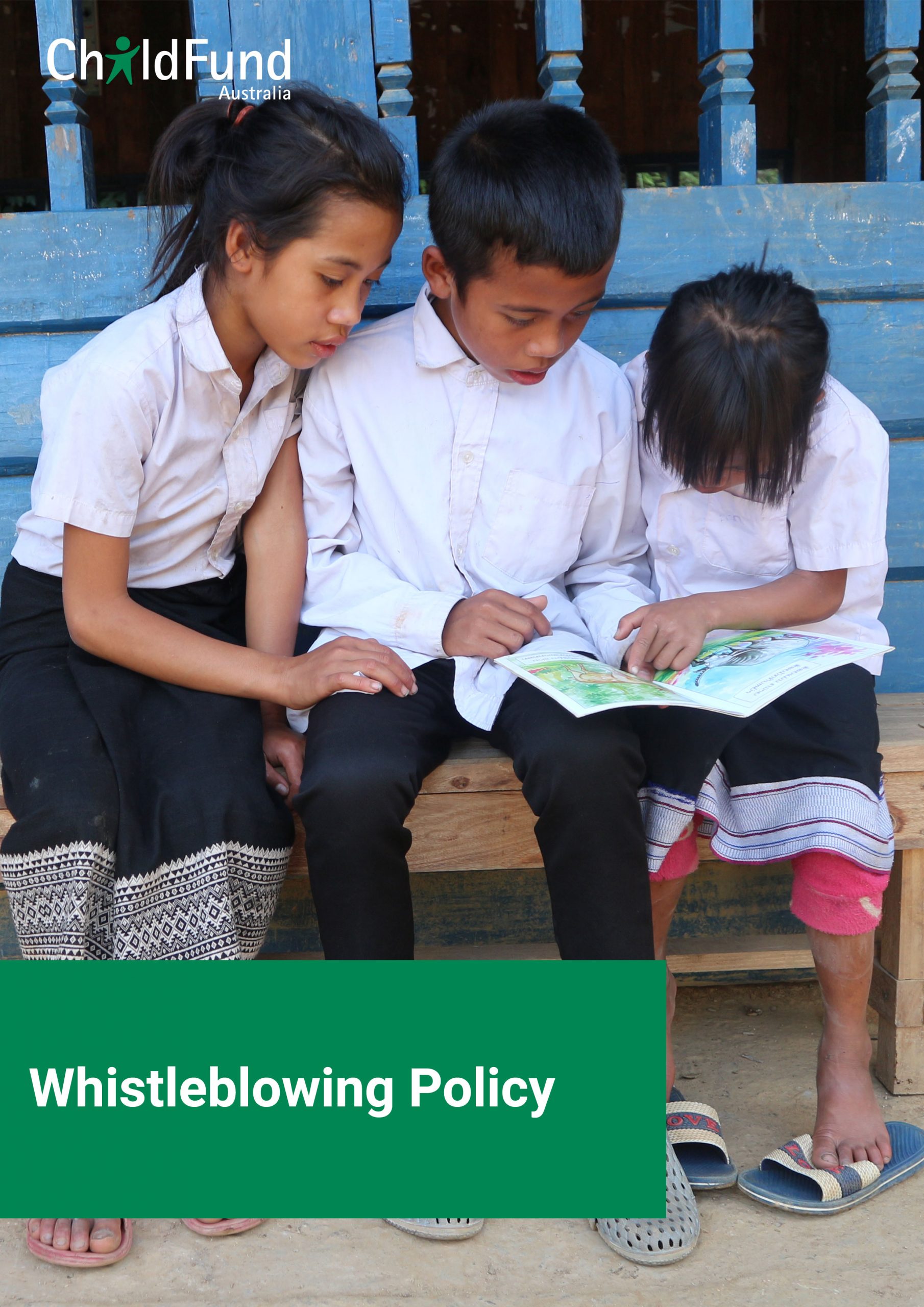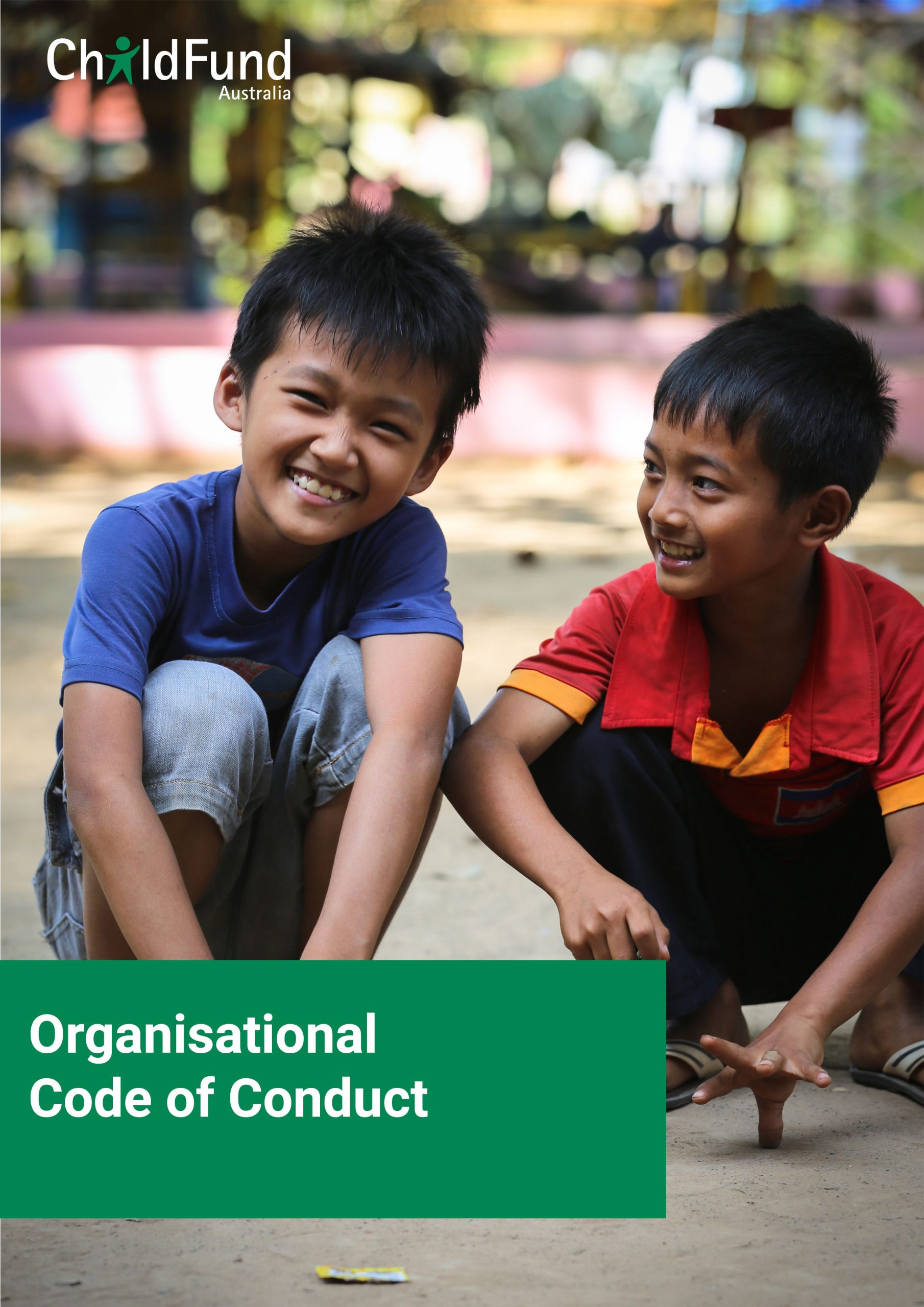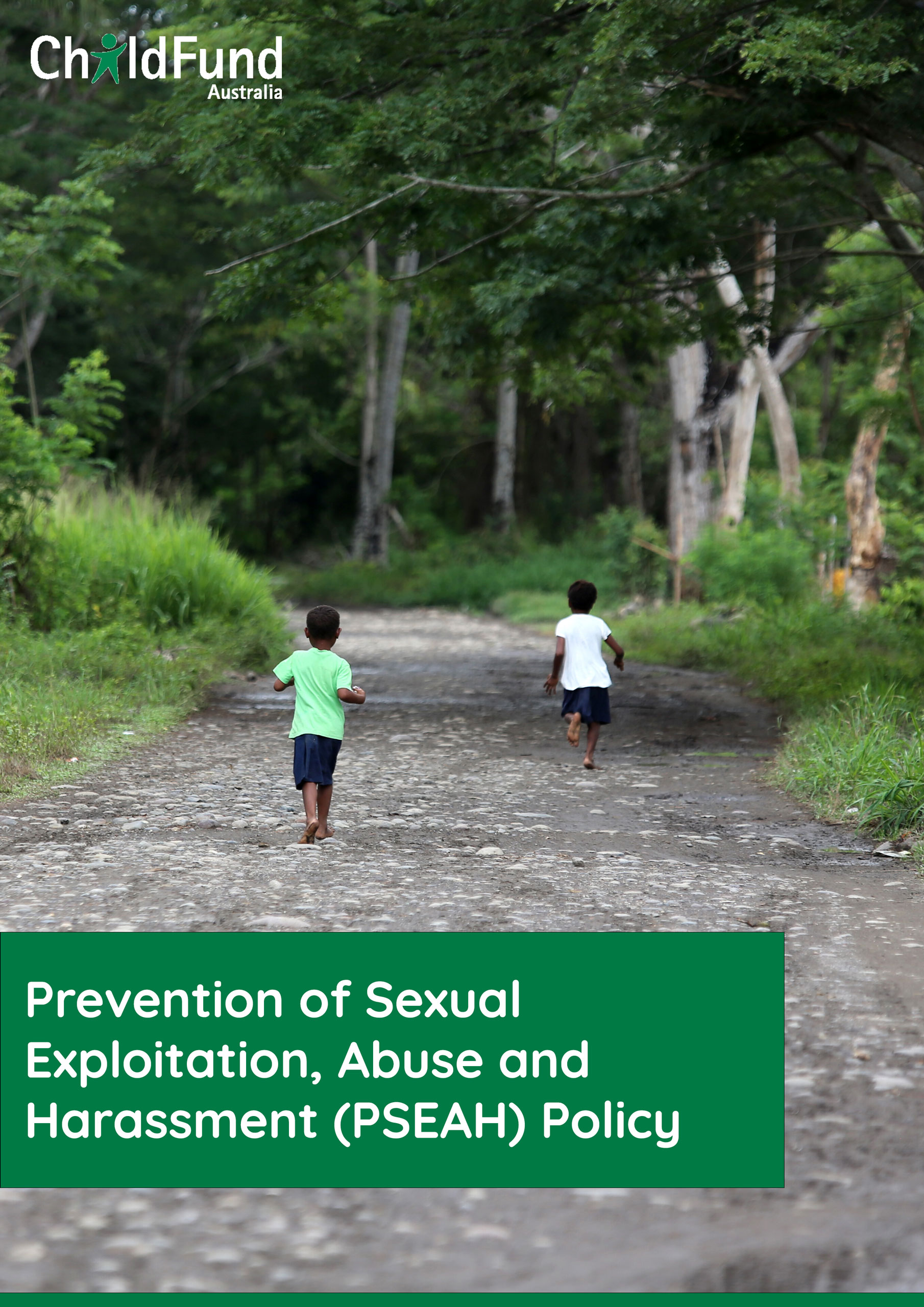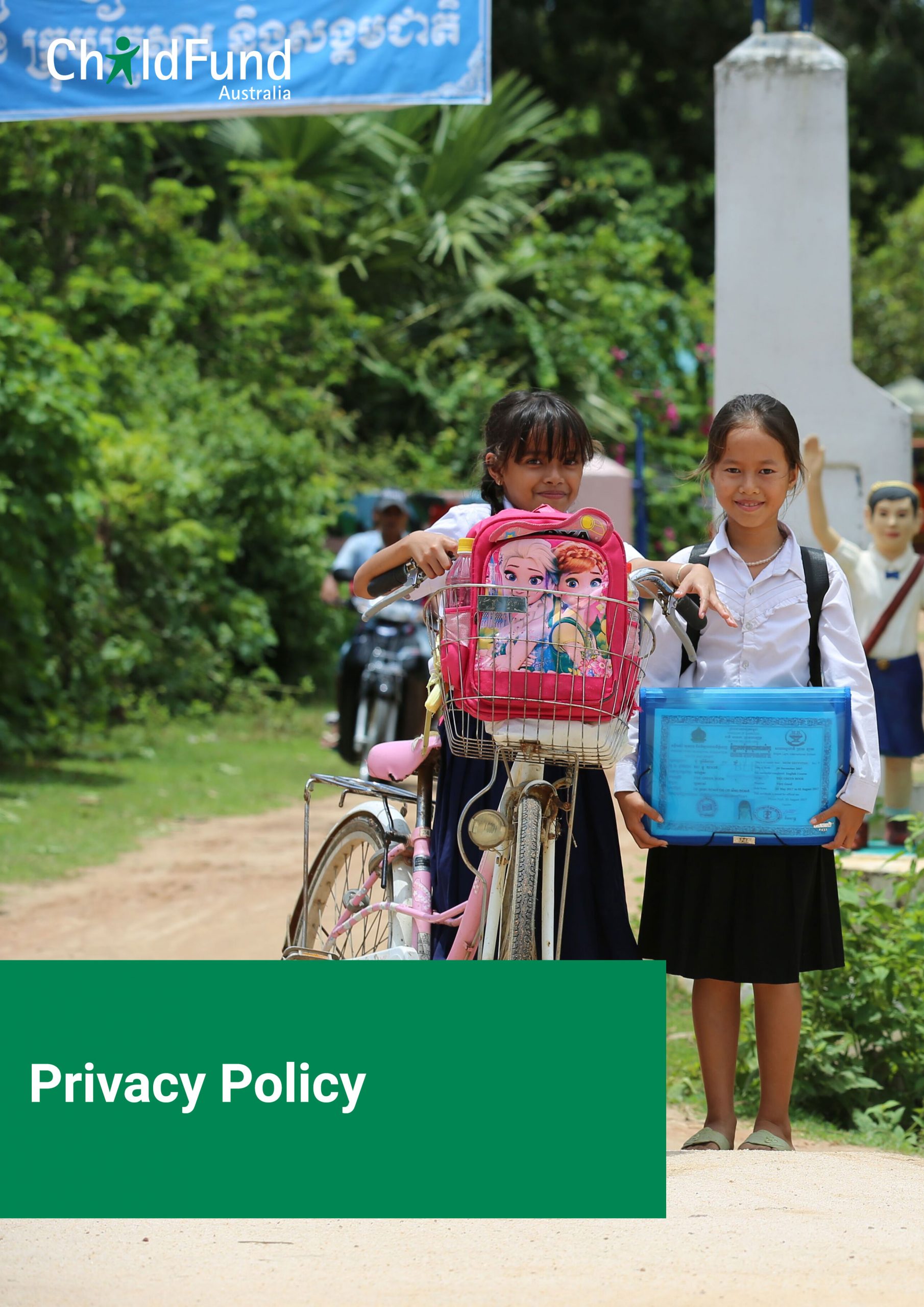Every child should experience a childhood in which they are nurtured, protected and given access to opportunity.
ChildFund Australia is an independent international development organisation that works to reduce poverty for children in many of the world’s most disadvantaged communities.
We partner to create community and systems change which enables vulnerable children and young people, in all their diversity, to assert and realise their rights.
ChildFund Australia is a member of the ChildFund Alliance – one of the world’s oldest and most experienced child-focused development agencies. With a global network of 11 organisations, the ChildFund Alliance assists nearly 36 million children and families in 70 countries.
ChildFund Australia directly manages and implements programs in Cambodia, Laos, Myanmar, Papua New Guinea, Timor-Leste and Vietnam, while also supporting projects delivered by partner organisations throughout Asia and the Pacific, Africa and North and South America. Our work is funded through public donations and government grants.
We are committed to public accountability and transparency. Annually, our accounts in Australia are audited by independent consultants KPMG. Read our latest Annual report.
As a member of the Australian Council for International Development, and a signatory to the ACFID Code of Conduct and the ACFID Fundraising Charter, ChildFund Australia must meet high standards of corporate governance, public accountability and financial management.
In addition, ChildFund Australia is fully accredited by the Department of Foreign Affairs and Trade which manages the Australian Government’s overseas aid program. Accreditation is a stringent process in which all operational activities – financial, managerial, fundraising and program – are analysed. This not only requires that ChildFund demonstrate that funds are distributed to community projects, but that they are spent effectively in those communities for the benefit of children.
ChildFund Australia is also a member of Accountable Now, a platform of international civil society organisations that strive to be transparent, responsive to stakeholders, and focused on delivering impact. As a member, ChildFund has signed 12 globally-agreed-upon Accountability Commitments and will report annually to an Independent Review Panel on our economic, environmental and social performance according to the Accountable Now reporting standards.
ChildFund Australia is proud to be a founding member of the Emergency Action Alliance. The Emergency Action Alliance (EAA) is a simple and effective way for Australian donors to help in an international humanitarian emergency. The EAA is made up of 15 Australian-based member charities who are experts in humanitarian aid and specialise in different areas of disaster response. By combining the expertise of the 15 members, the EAA can focus the desire of Australian donors to help into a targeted response to an international emergency.
ChildFund Australia is committed to an equitable and inclusive workplace, in line with our organisational values, where everyone’s rights are protected. We are a member of the Diversity Council of Australia. In addition to our Organisational Inclusion Policy, we have an Action Plan and Diversity, Equity and Inclusion Committee through which we work to strengthen our workplace culture so that people feel safe, respected, connected, contribute and progress.
ChildFund Australia is committed to reduce our impact on the environment. Following a Green Audit performed by 180 Degrees Consulting, we have committed to reduce our CO2 emissions & waste, increase awareness amongst staff, and offset all our carbon emissions through a partnership with Greenfleet. Greenfleet supports Australian native reforestation projects. Our carbon offset contributes to future carbon sequestration and ensures we are leading the way on climate action.
Diversity, Equity and Inclusion at ChildFund Australia
While ChildFund Australia does not implement national programs, as a child-focused development organisation we recognise the special place of First Nations children and young people in Australia. We also acknowledge the vital place of First Nations peoples and their knowledge and language systems in creating sustainable development. As a whole organisation and as individual staff members we therefore commit to a process where we self-examine, learn, and grow, as reflected in our Reconciliation Action Plan.
ChildFund Australia Policies
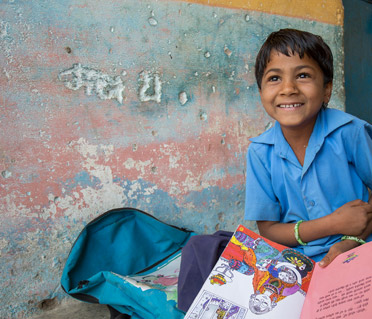
Our Vision
A world without poverty where all children and young people can say: “I am safe. I am educated. I contribute. I have a future.”
Our History
After beginning work in China in 1938, ChildFund is now one of the world’s oldest child-focused development organisations. ChildFund (or China’s Children Fund as it was known then) was started by an American humanitarian, Dr J Calvitt Clarke, following the second Sino-Japanese War in 1937. Amidst reports of widespread devastation and the displacement of millions of families, Dr Clarke decided to take action to support the relief effort. From his home in Virginia, USA and with the support of wife Helen, Dr Clarke launched a nationwide appeal for funds for displaced children in China. In the midst of the Depression, and using his own money for stationery and postage, Dr Clarke found enough willing supporters to enable him to establish China’s Children Fund (CCF) in 1938, sending the organisation’s first contribution of US$2,000 to support local initiatives in China. Dr Clarke continued to write and appeal for assistance and, by the end of 1939, CCF had sent a total of US$13,000 to support the KuKong orphanage and a school in China. Eight decades later and CCF has transformed into the ChildFund Alliance, a global network of child-focused development organisations assisting children and families in 70 countries.
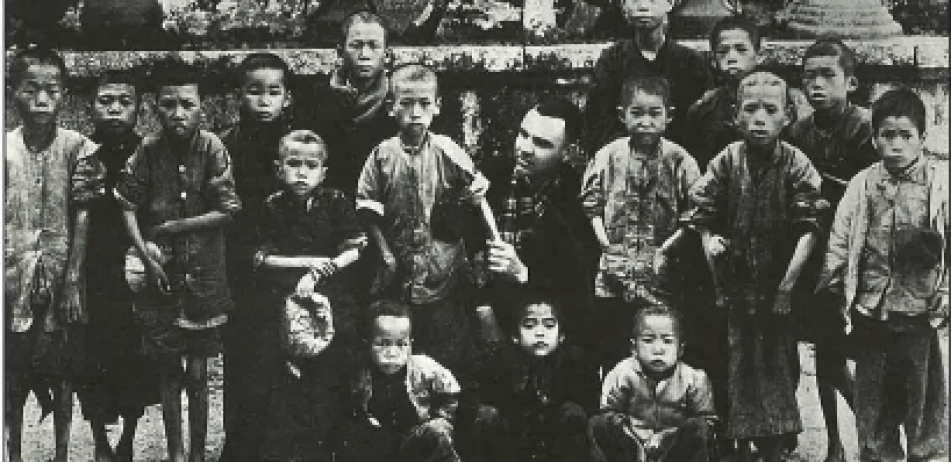
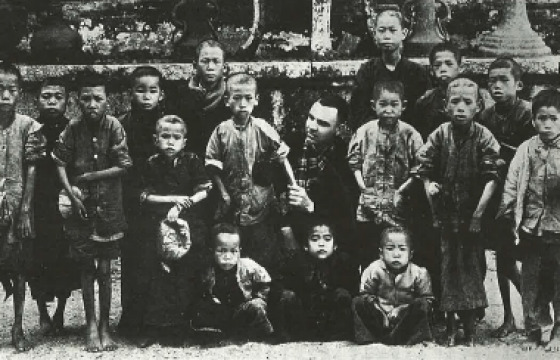
1938
China Children’s Fund (CCF) is established to help children devastated by the Sino-Japanese war. Donations are used to support a school and the KuKong orphanage.
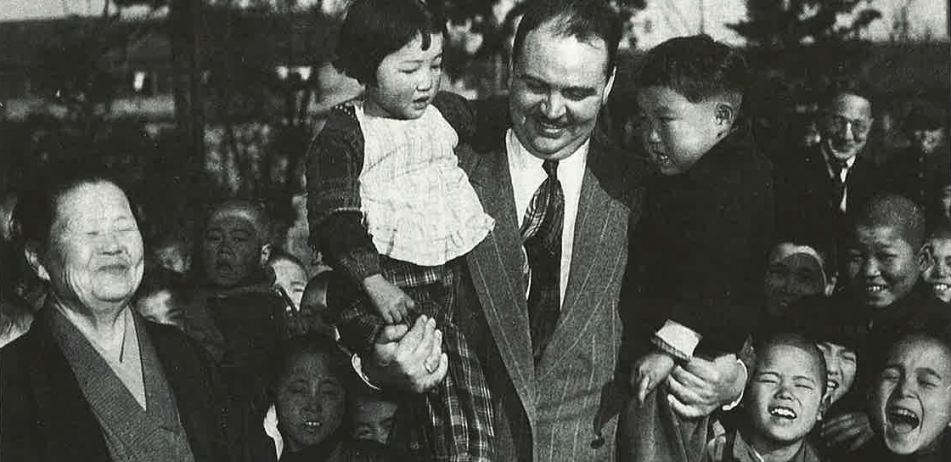
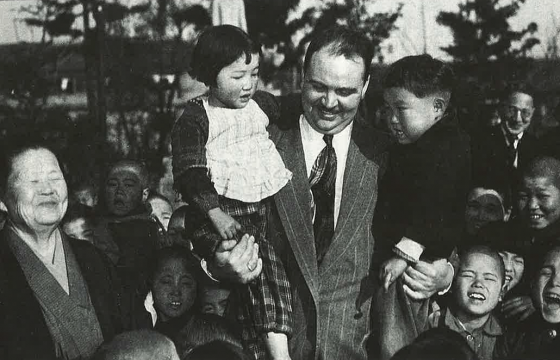
1941
CCF implements a child sponsorship program, which enables sponsors to donate funds to support an individual child.
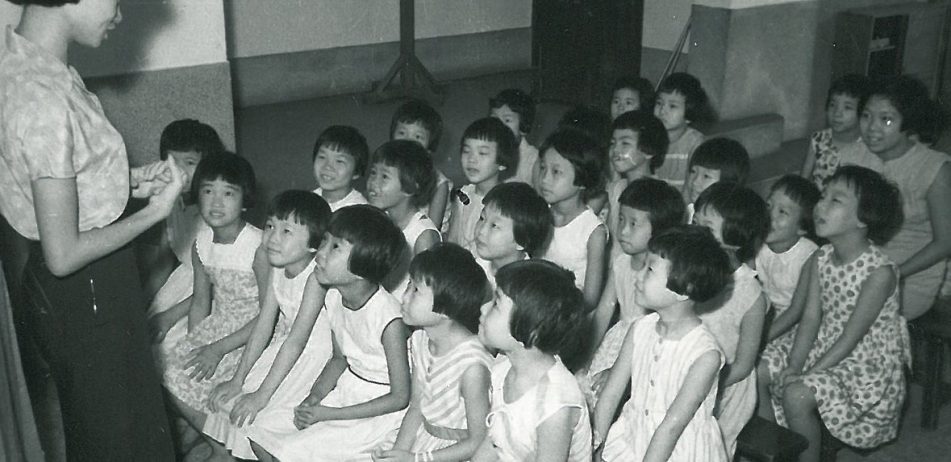
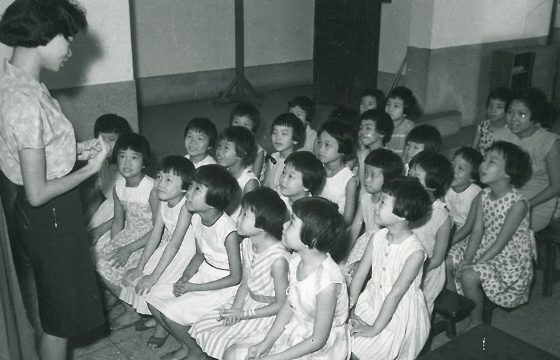
1946
CCF’s work grows to include the Philippines, Burma, Korea, Japan, Malaysia, Indonesia, and India. After World War II, CCF expands its work to Europe, focusing on providing education, food and shelter for children, particularly those children displaced and orphaned by war.
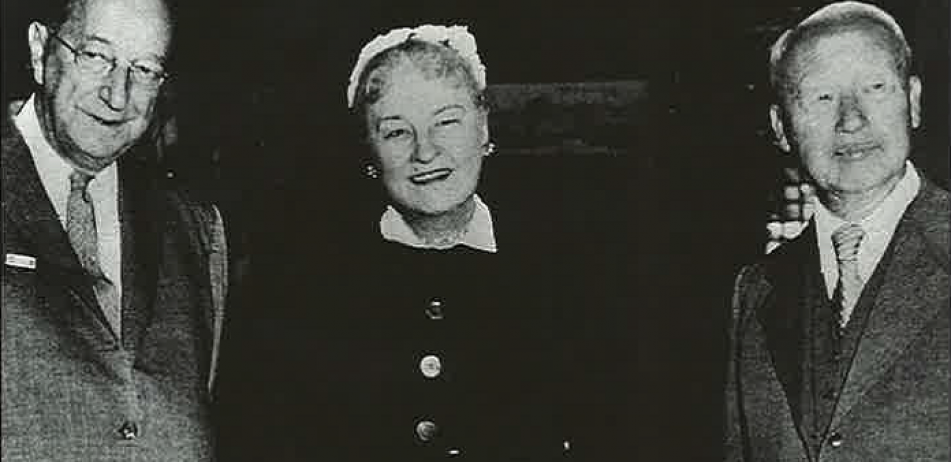
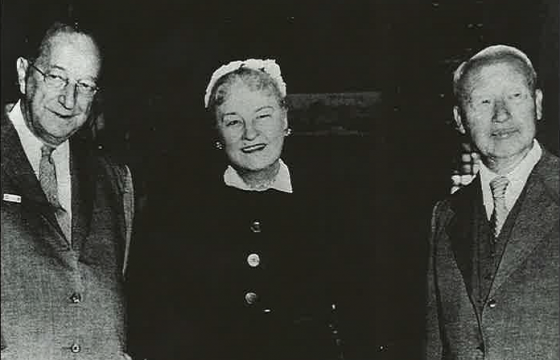
1951
To recognise the global nature of the organisation, the CCF acronym is changed to represent Christian Children’s Fund. Work commences in Lebanon, Syria, Palestine and South Korea.
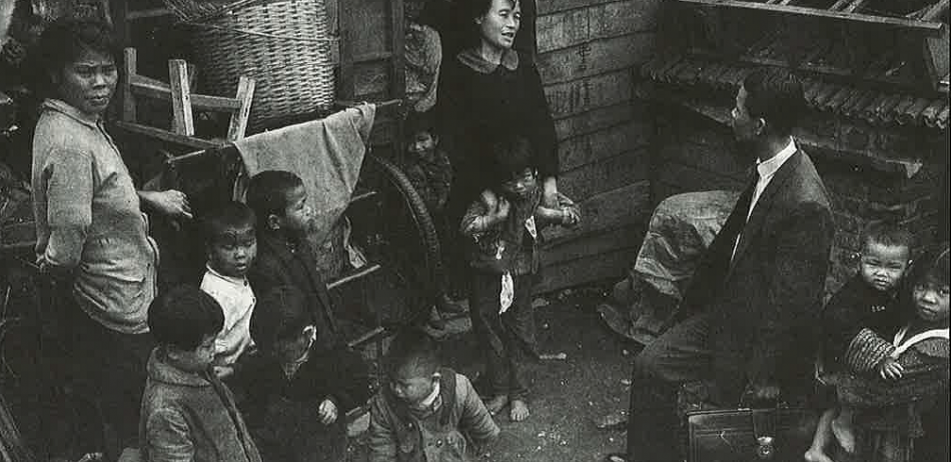
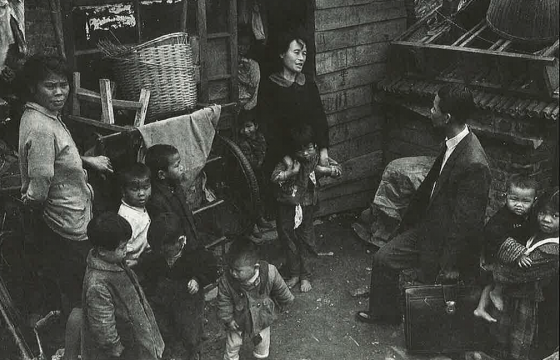
1960
A change in philosophy begins, with CCF focusing on providing assistance to children through family support, replacing assistance for children in orphanages as the main program approach. Work expands to Taiwan and Brazil. CCF Canada is established.
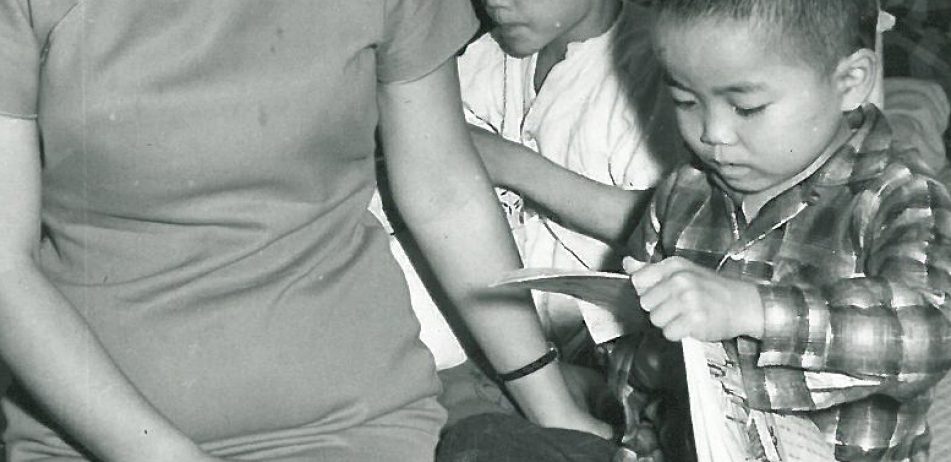
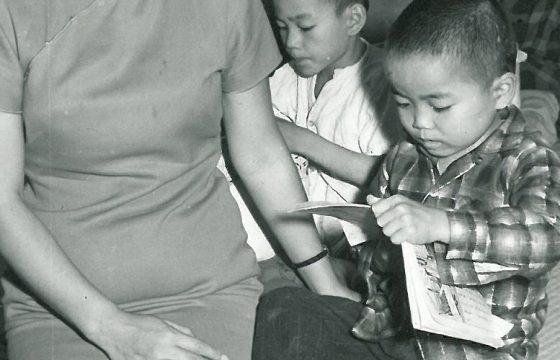
1967
CCF makes another shift in its work to ensure that local programs are led by local leaders, whenever possible.
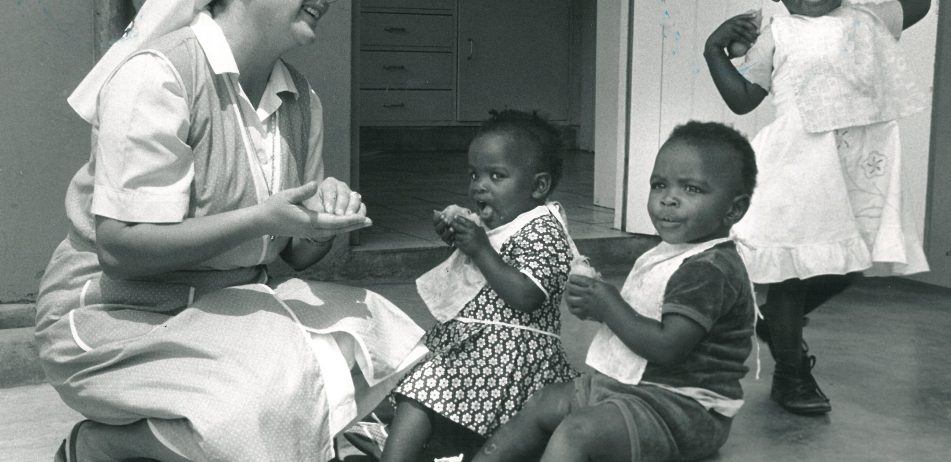
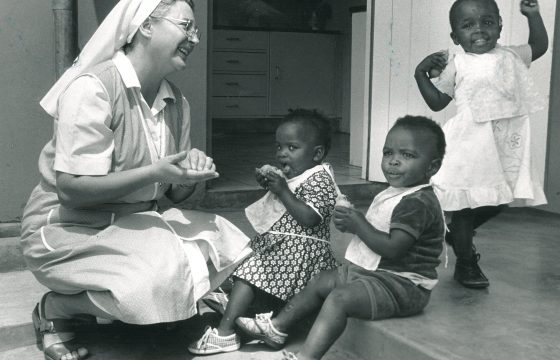
1973
CCF ends its work in Europe and the Middle-East to concentrate on programs in Africa, starting in Kenya. New CCF members are established in Denmark Germany and elsewhere.
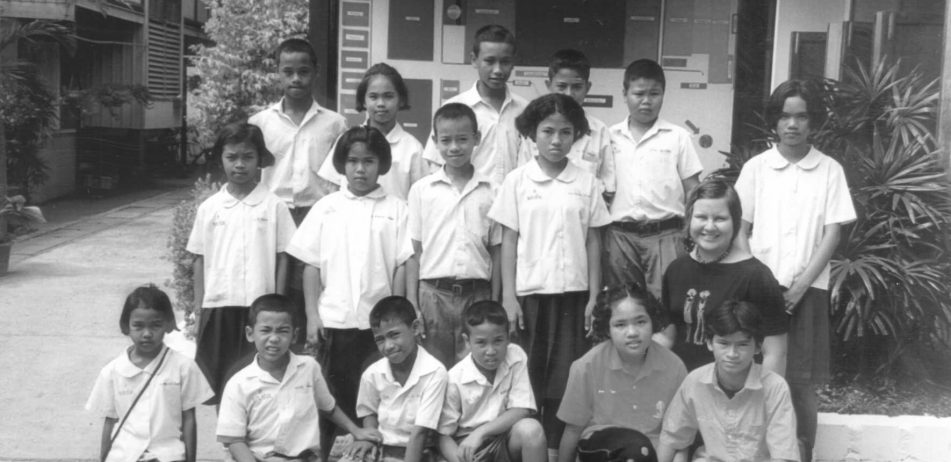
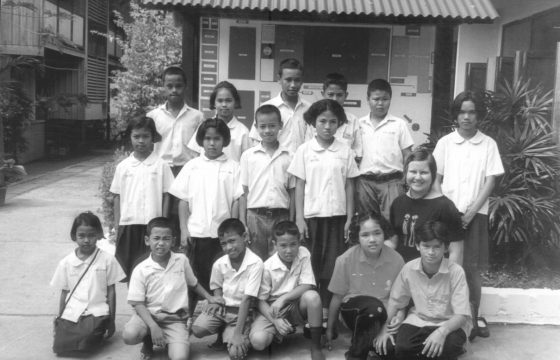
1985
CCF Australia is established by a group of eminent Australians including Dr Adrian Johnson, Sir Roden Cutler VC, Bob Stevenson and Bill Joris. It focuses on raising sponsorship funds to support the programs delivered by CCF around the world.
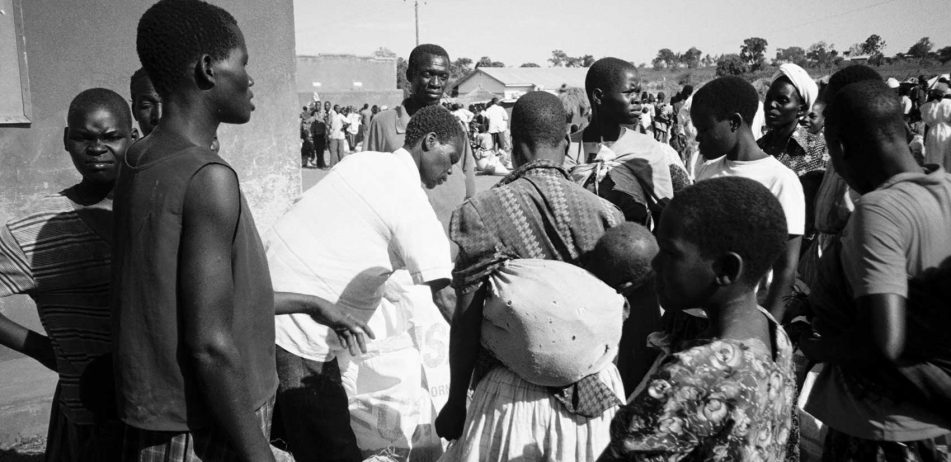
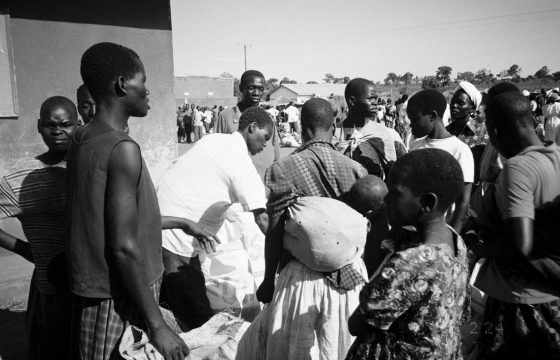
1990s
CCF begins to play a greater role in delivering humanitarian support during disasters, including food, water and emergency shelter and the establishment of Child Centred-Spaces which provide a safe place for displaced children.
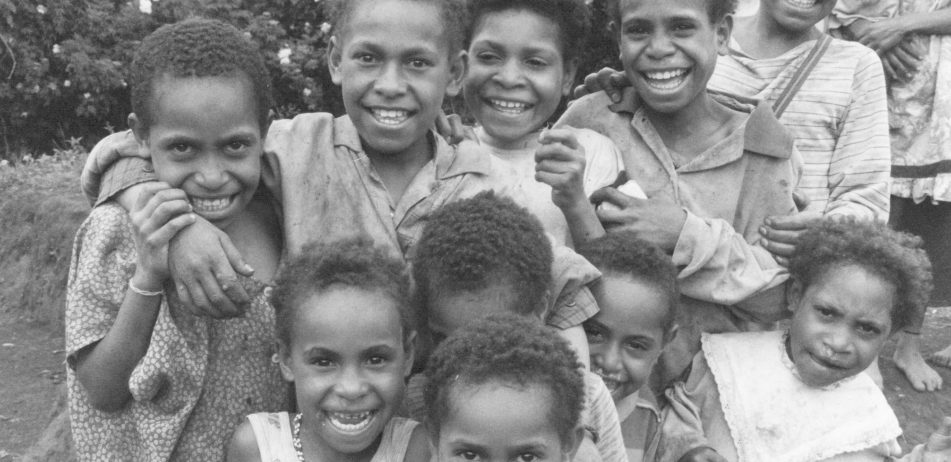
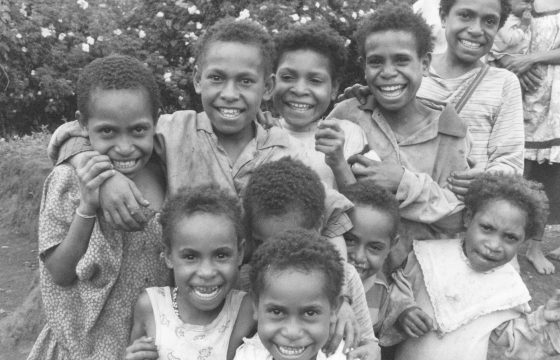
1994
CCF Australia establishes its first community development programs in Papua New Guinea, partnering with the Salvation Army.
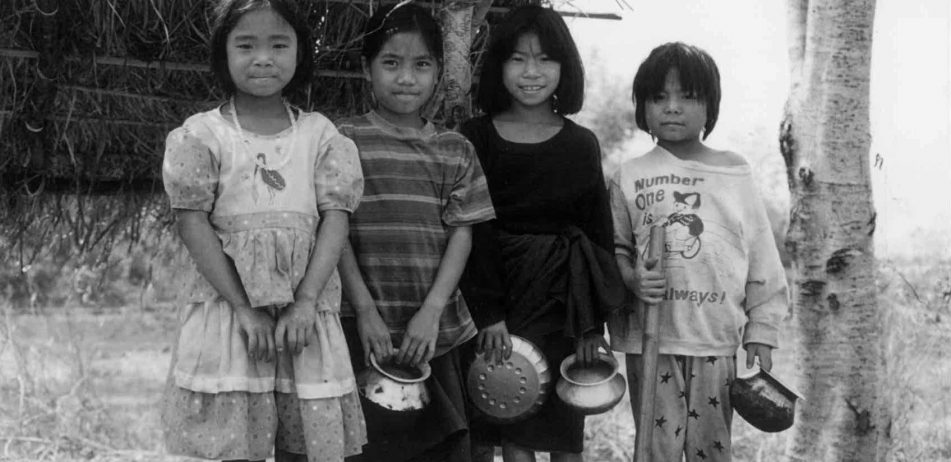
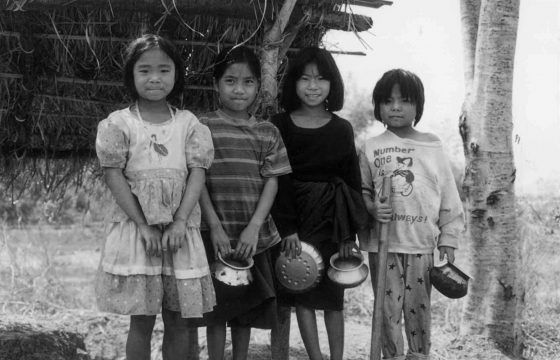
1995
CCF Australia begins work in Vietnam, working with ethnic minority communities in remote areas in the north of the country.
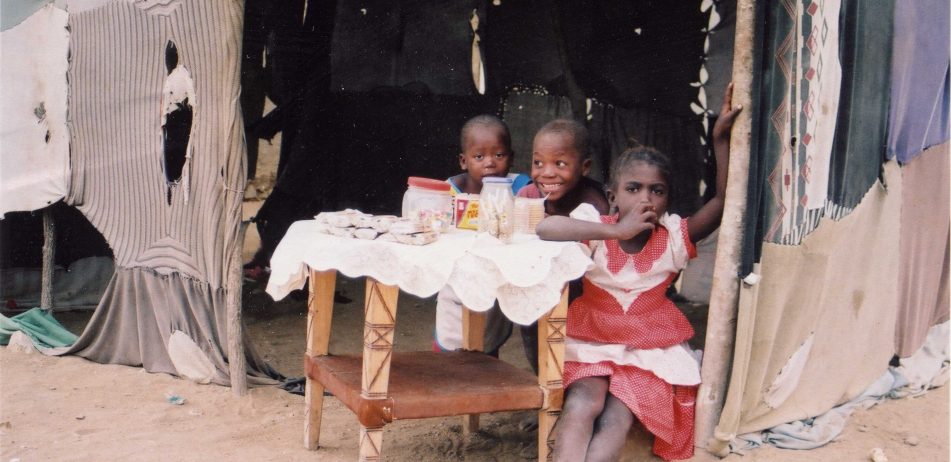
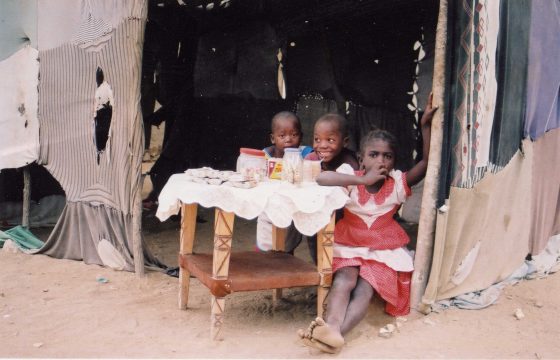
2002
The CCF Child Poverty study is undertaken, which finds that children experience poverty through three dimensions: deprivation, exclusion and vulnerability. This research gives added emphasis to CCF’s community development program approach.
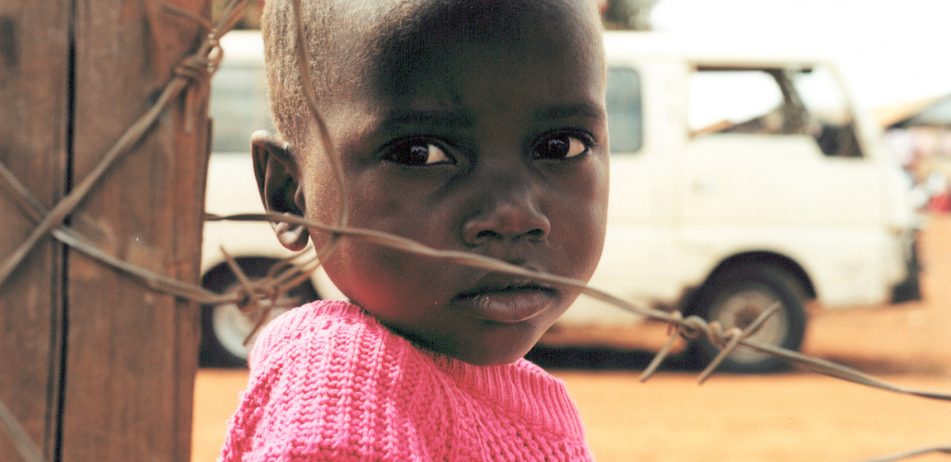
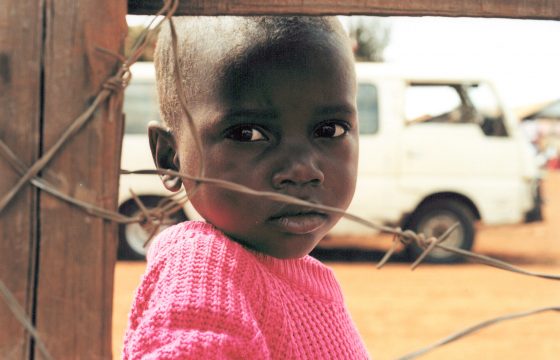
2005
CCF Australia changes its name to ChildFund Australia, to clearly reflect its values and vision: to assist children in need regardless of their gender, religion or ethnicity. ChildFund Australia becomes one of 12 global members of the newly formed ChildFund Alliance.
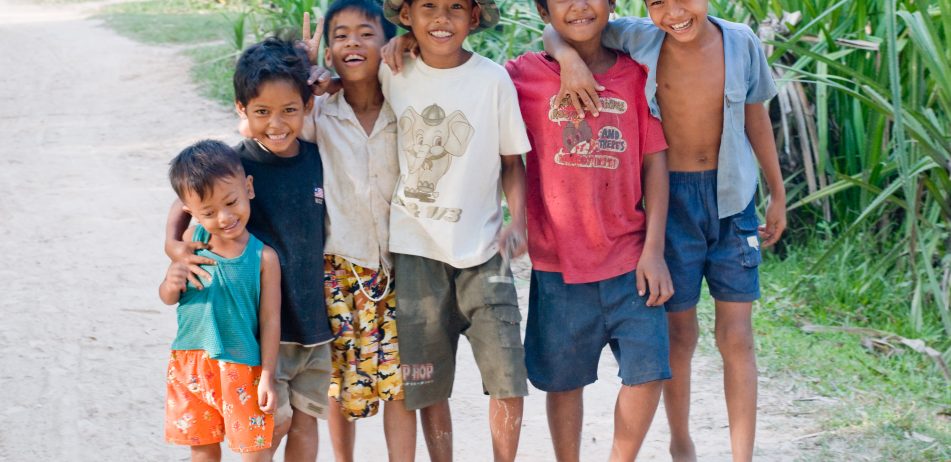
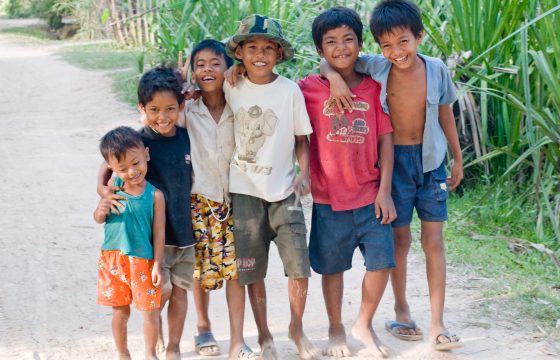
2007
ChildFund Australia begins work in Cambodia, supporting rural communities still recovering from the aftermath of three decades of civil war under the Khmer Rouge. ChildFund Cambodia helps to establish the country’s first ever child helpline.
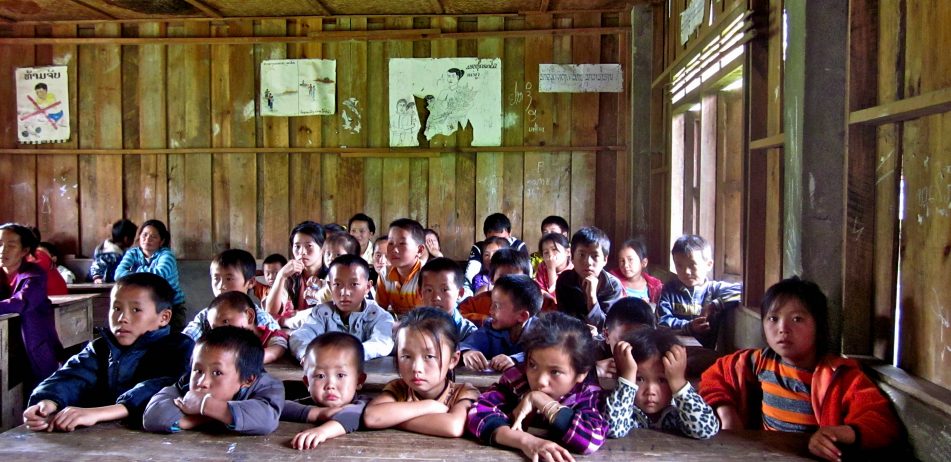
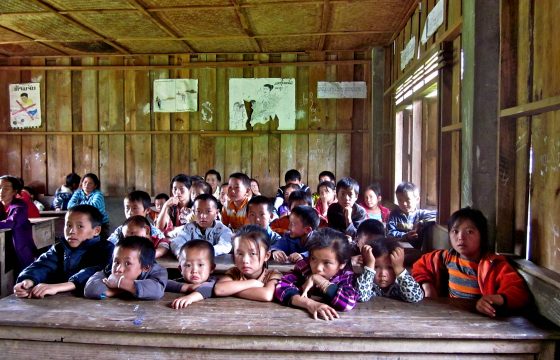
2010
ChildFund Australia begin work in Laos, implementing programs in Xieng Khouang Province; one of the poorest regions of the country with significantly high unexploded ordnance contamination.
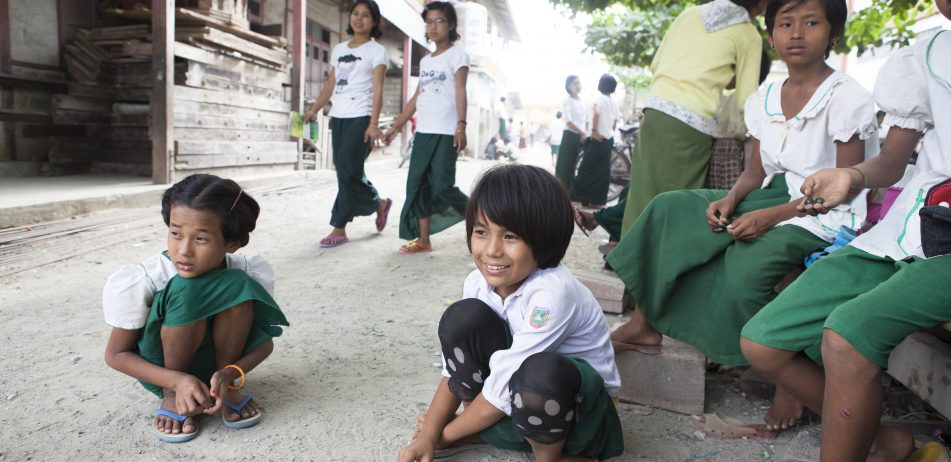
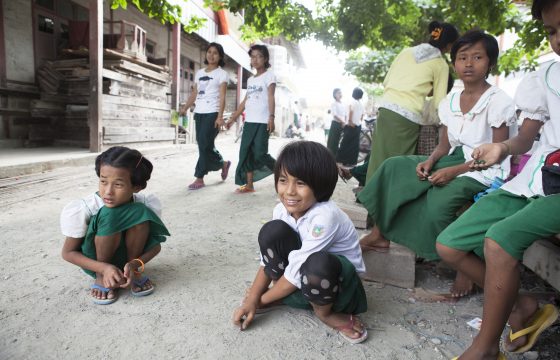
2012
ChildFund Australia begin work in Myanmar (formerly known as Burma) as the country emerges from decades of military rule, implementing child-focused development programs in partnership with local civil society organisations.
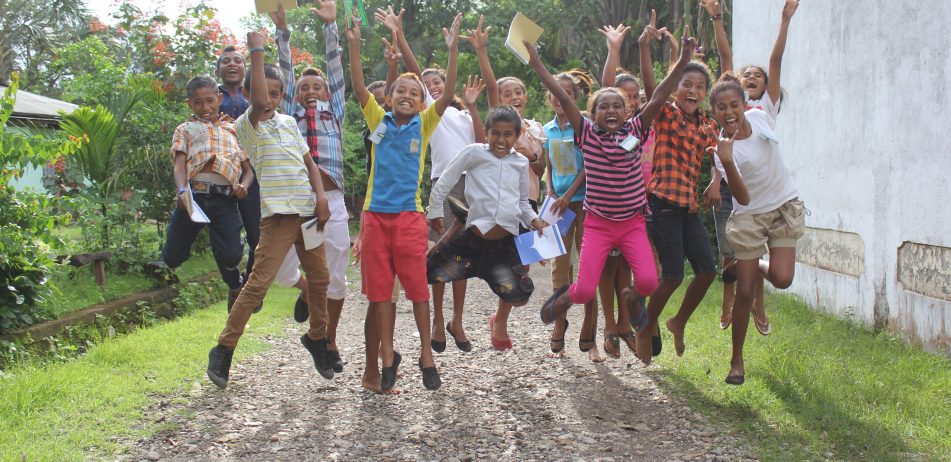
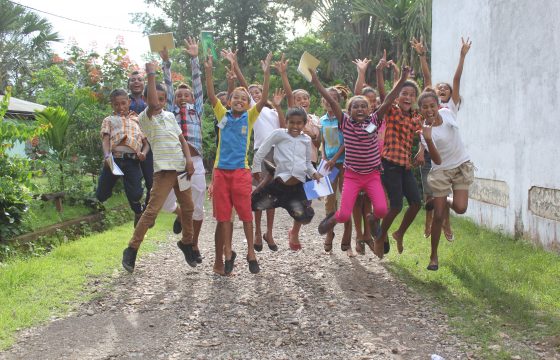
2017
ChildFund Australia takes over the management of the ChildFund Timor-Leste office, and iCARE becomes a wholly owned subsidiary.
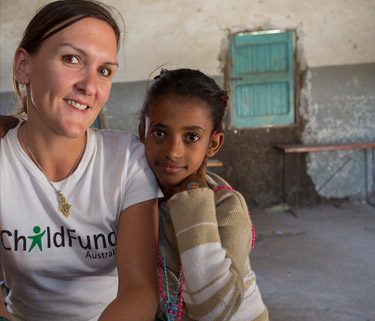
Our Expertise
ChildFund is one of the oldest and most experienced child focused international development organisations.
Our People
Click on the profile to learn more

Michael Rose AM
AmbassadorMichael has a long history in international aid and development having been the Chair of both ChildFund Australia and ChildFund Alliance. He is currently the Chair of the Institute for Global Development at the University of New South Wales. Michael is also the Chair of the Committee for Sydney and a member of the Board of the Westmead Institute for Medical Research. He has advisory roles with KPMG and UNSW and is a Fellow of the Australian Institute of Company Directors.

Annabelle Williams OAM
AmbassadorAnnabelle is a Paralympic Gold Medallist, international motivational speaker, lawyer, brand ambassador, board director, TV reporter and sports commentator. She is a strong advocate for the rights of athletes and, at the age of 24, was awarded with the Medal of the Order of Australia for her service to sport. Annabelle holds a number of international board and advisory positions and recently graduated from the Stanford University Graduate School of Business, where she delivered the Valedictory Address. Annabelle joined the Board in November 2019, took a leave of absence from May to August 2020 and is a member of the Communications and Marketing Committee.
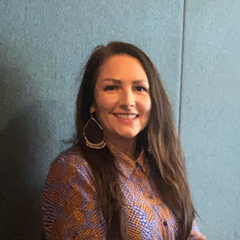
Sonya Ryan
AmbassadorCarly Ryan was 15-years-old when she was murdered by an online predator. It was the first crime of its type in Australia, occurring in 2007 when social media was a new phenomenon and paedophiles were increasing their efforts to infiltrate the online space. Determined to help prevent harm to other innocent children and to help them navigate their online journey safely, Carly’s mum Sonya, shared her lived experience and incorporated The Carly Ryan Foundation (CRF) in 2010 creating an extraordinary legacy.
The Carly Ryan Foundation is broadening its efforts and is now established in the United States and will continue their advocacy to introduce Carly Law there whilst sharing valuable resources and crime prevention initiatives to benefit US citizens and children. This crime type is borderless, offenders can easily access their victims from anywhere in the world, exploiting them under a veil of privacy and anonymity.
Sonya has led efforts for over a decade in Australia to make her home country one of the toughest on online crime and harms. Australia is now an international leader in crime prevention.
Sonya’s lived experience of extreme suffering demonstrates the strength of a mother’s love connection with her daughter – the unparalleled power of love.

Danielle Cormack
AmbassadorDanielle Cormack is an award-winning actress who has an extensive career in film, theatre and television. She quickly came to prominence in Australia with performances in television series Wentworth, Rake and Underbelly: Razor. Her many film credits include Separation City and Siam Sunset, for which she received an award for Best Actress at the Fantasporto International Film Festival. A mother of two, Danielle sponsors Akulla Lona in Uganda and Srey in Cambodia. Having visited Vietnam, Cambodia, Kenya and Uganda to see ChildFund’s work first-hand, Danielle has seen the enormous difference that international aid programs can make to children living in the world’s most marginalised communities.
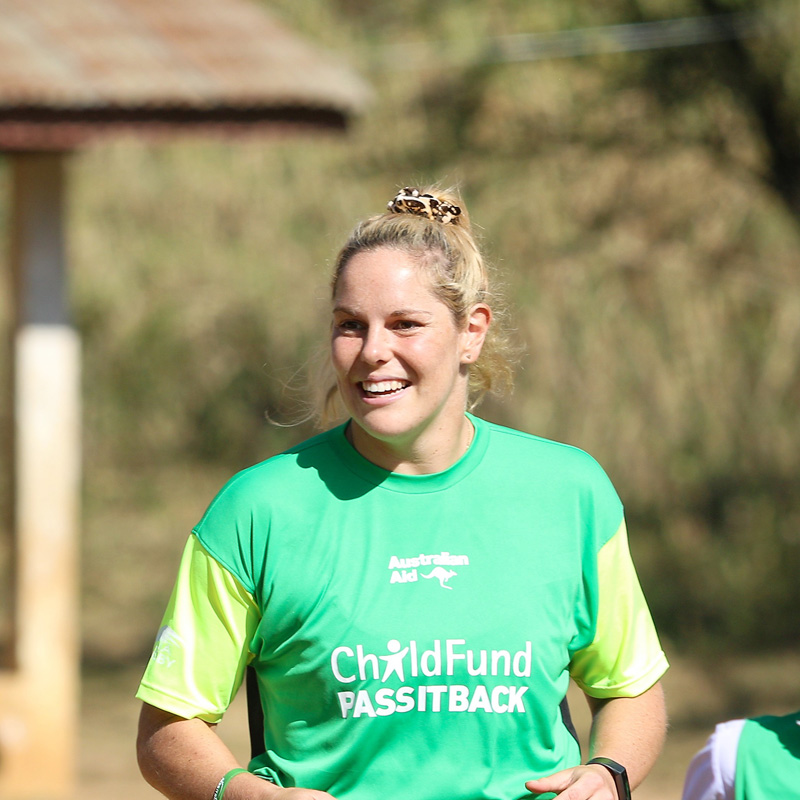
Emily Chancellor
AmbassadorEmily has been playing rugby since 2013. A club rugby player for Sydney University, she holds several representative titles and honours from her rugby journey so far, including two NSW 7s titles in 2014 and 2016; Sydney XV tiles 2015, 2016 and 2017 at the National Championships, captaining the Australian team for World University Games in 2016 and the Macquarie University AON 7s team in 2017 and 2018. Emily is now a valuable member of the Australian Wallaroos squad and took home the prestigious Buildcorp Player of the Year trophy in 2018 in her debut year. Emily has been named best forward for the NSW Waratahs in 2021 and 2022 and is off to the Rugby World Cup in October. In her working life, Emily is the Club Development Manager for Sydney University Sport and Fitness managing all the sports clubs and some of the Elite Athletes and holds a 1st Class Honours Degree in Education and a Master of Management both from Sydney University.
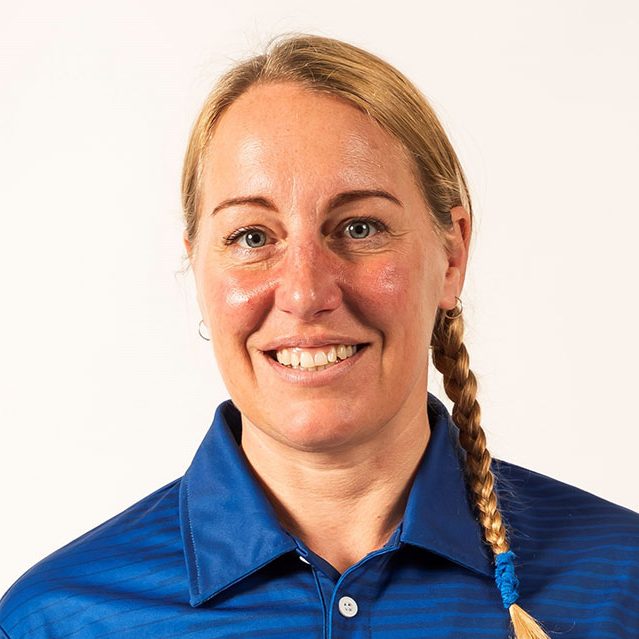
Aimee Sutorius
AmbassadorAimee has a passion for rugby, sport, health, fitness, and wellbeing. Representing both the Black Ferns and Black Ferns 7s, her career is now focused on educating students at university and, more recently, in rugby-specific roles as a coach and the Women’s High Performance Player Development Manager for Otago Rugby.

Amy Sligar
AmbassadorAmy Sligar is a professional Netballer, currently playing for the Giants in the Suncorp Super Netball. She is also a member of the Australian U21 squad. Amy is studying a Bachelor of Biomedical Science at the University of Technology, Sydney. She has a passion for championing children’s rights and wellbeing, as well as girls and young women empowered through sport.
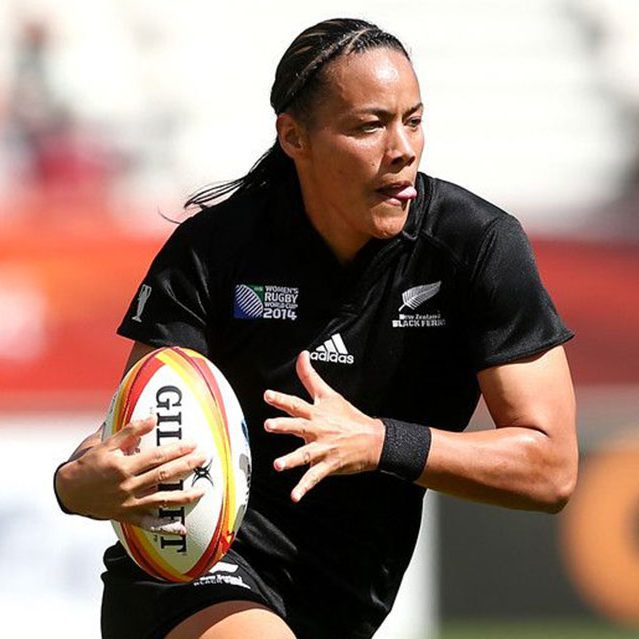
Honey Hireme-Smiler
AmbassadorHoney Hireme-Smiler is one of New Zealand’s most talented cross-code female athletes, having represented the country in rugby union, rugby league and rugby 7s. Her career in NZ rugby league spans almost two decades, during which time she has captained the team on numerous occasions. Honey’s influence both on and off the field saw her appointed a Member of the New Zealand Order of Merit for her services to the game in the 2020 new year’s honours role. Honey now works as a disability sport advisor for the Halberg foundation.

Lauren Moore
AmbassadorLauren Moore also currently plays for the Giants and started playing at 5 years old. She has been a professional player since 2016, and has won two Premierships with the NSW Swifts, and then moved clubs to cross town rivals, the Giants in 2022. Lauren is passionate about helping others live a happy, healthy life. She is a Disability Support worker with the Whatability Foundation.
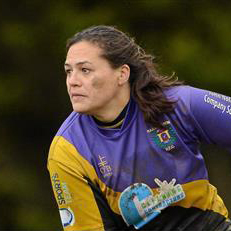
Mere Baker
AmbassadorBorn in Riverton, New Zealand, Mere debuted with the Aotearoa Māori Women’s Sevens in 2000. Since then, she has embarked on a career as an internationally renowned athlete and coach, playing professionally in Europe, Australia and in the USA. Mere returned to New Zealand in 2019 to take up the position of Women’s High-Performance manager with Rugby Southland. Mere also developed the Hapori Project, a coaching, cultural and life skills programme which includes the Hapori Festival, an initiative for rangatahi and their extended whānau.
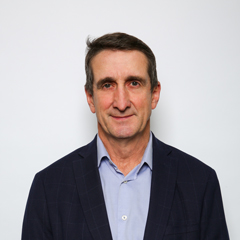
Michael Pain
Chair
Board MemberMichael Pain retired from Accenture in 2015 as a Managing Director with Accenture Australia, having led major practice areas including Advanced Technology, Management Consulting, Strategy, Digital, and Analytics across various Asia Pacific regions. Michael co-led Accenture’s corporate giving activities, helping to initiate Corporate Citizenship for Accenture in Australia. Currently Michael’s activities include NFP Board membership, philanthropy, and ethical investment. Michael has a Bachelor of Science (Hons) from the University of Sydney and an MBA (Hons) from INSEAD in France. After a leave of absence living in Canada, Michael re-joined the Board in 2018 and is currently the Chair of the Board.

Lyndsey Rice
Vice-Chair
Board MemberLyndsey has over 15 years leadership experience gained across international markets and is currently the Chief Executive Officer of Children’s Hospital Foundation. She is experienced in strategic planning, fundraising, marketing, philanthropy, digital transformation and leading highly effective teams. Lyndsey’s career spans international development, social services, health, medical research and the arts and she is passionate about building inclusive, engaged, and inspiring cultures to achieve the best possible outcomes for the communities we serve. Lyndsey joined the ChildFund Australia Board in February 2022 and is a member of the Communications & Marketing committee.
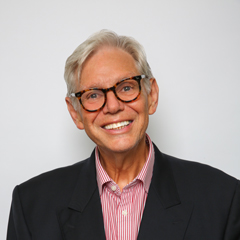
David Shortland
Board MemberDavid is a governance advisor and communication counsel to boards and senior executives. He is a Board Advisor and facilitator for the Australian Institute of Company Directors (AICD) in Strategy, Risk, Board Effectiveness & Governance generally. He co-authored the first edition of AICD’s Good Governance Principles and Guidance for Not-For-Profit Organisations. David is a Fellow of the National Heart Foundation of Australia, having been a director of the Heart Foundation (NSW). He joined the ChildFund Australia board in November 2014, was Deputy Chair from 2017 – 2020 and is a member of Audit, Risk and Nominations and Communication & Marketing Committees. David is a director of the international board of ChildFund Alliance.
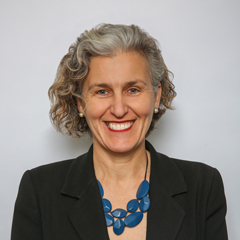
Tureia Sample
Board MemberTureia Sample is an experienced lawyer specialising in critical infrastructure, supply chain and governance projects particularly in the communications, transport, health and energy sectors. She is a partner at PwC, and previously held senior executive roles at SBS including Company Secretary and Director of Corporate Affairs. Prior to that she worked as a lawyer with Allens Linklaters (Sydney and Hong Kong). Tureia is a graduate of the Australian Institute of Company Directors. Tureia was born and grew up in Papua New Guinea and spent a number of years studying and working in Japan. Tureia joined the ChildFund Australia board in June 2021 and is a member of the Program Review Committee.
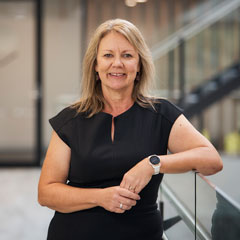
Lisa Hresc
Board MemberLisa is an experienced media, brand, and digital marketing strategist. Lisa has held executive leadership roles in Brand, Marketing & Communications across media, broadcast and in the not-for-profit sector for over twenty years. Currently Lisa is the Director, Brand, Marketing & Communications for The Benevolent Society. Previously held positions as the Strategic Business Director for Lee Media & Co, and General Manager, Marketing & Communications ABC Commercial and Head Corporate Marketing for Australian Broadcasting Corporation. Lisa completed executive MBA in 2011. She is a member of the Audit, Risk and Nominations committee and the Communications and Marketing committee.

Kobus Ehlers
Board MemberKobus Ehlers is an experienced leader in governance, risk and compliance with more than 20 years’ experience working and leading teams in large multinational companies across a range of industries and markets including Australia, Africa and Asia.
A Chartered Accountant by training, Kobus has a deep understanding of the challenges and opportunities that good goverance could bring to emerging economies.
Kobus joined the Board in March 2021 and is Chair of the Audit, Risk and Nominations committee.
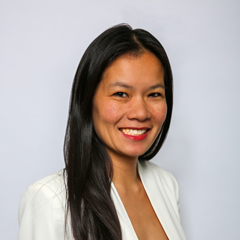
Nancy Tchou
Board MemberNancy Tchou has a finance/law degree and over 15 years experience in investment banking, specializing in infrastructure mergers & acquisitions/investments. She is currently leading the superannuation fund efforts at a global investment bank – capturing the recent trend of superannuation funds fundamentally changing the investment landscape with its significant capital supply. Nancy has significant experience in local and cross-border projects and has led landmark, high profile government strategic reviews and privatisations. Nancy is a member of the Risk, Audit and Nominations Committee
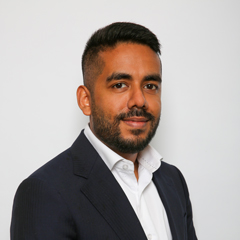
Shantanu Paul
Board MemberShantanu has over a decade of experience in Social Entrepreneurship and International Development. He is currently the Managing Director of Leaders for Climate Action Australia, an organisation looking to drive urgent climate action with digital and technology sector companies and stakeholders. Prior to this, he has spent 6 years working in South Asia with Ashoka, the world’s largest network of leading social entrepreneurs. At Ashoka, he has led several key programs and advised over 500 social entrepreneurs across sectors such as human rights, healthcare, civic participation, and education. His work with social entrepreneurs has helped hundreds of innovations scale towards creating systemic change. Shantanu previously sat as a youth representative on the Board of Plan International Australia and has led several youth initiatives in Australia. He is currently sitting on the Program Review Committee.
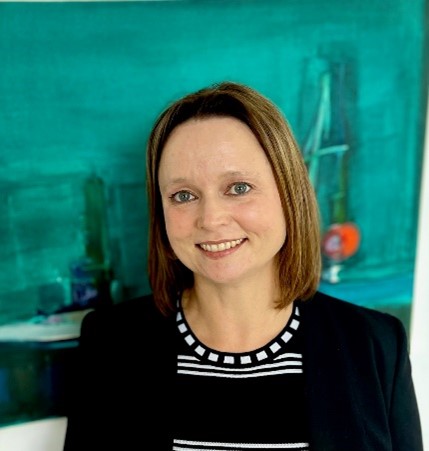
Philippa Venning
Board MemberPhilippa Venning is Vice President at Abt Associates. Based in Canberra, she leads Abt’s technical team to provide quality advice and implementation across the breadth of Abt’s programs. Philippa leads DFAT-funded programs in women’s economic empowerment, governance and health across Asia and the Pacific.
Prior to joining Abt, Philippa worked for DFAT, the World Bank, United Nations Development Program, and several NGOs. Her most recent role at DFAT was Deputy Head of Mission in Timor-Leste. For DFAT and the World Bank, Philippa designed and implemented governance, service delivery and gender programs in Timor-Leste, Solomon Islands and Indonesia. She has spent 12 years working in the Asia-Pacific region in addition to over 14 years’ experience in Australia.
Before becoming a development professional, Philippa spent several years as a corporate lawyer working for Allens Linklaters in Sydney and Singapore.
Philippa joined the ChildFund Australia board in November 2023.
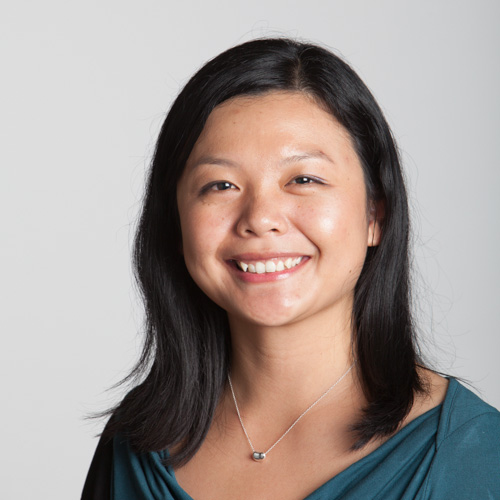
Yih Jeh (EJ) Teen
Board MemberYih-Jeh has over 15 years of global experience in strategic business and technology transformation working with large international organisations, ASX listed companies and not-for-profits. Currently, Yih-Jeh is the Product Manager Leader for the deposit portfolio at Bank Australia, and previously worked for The Fred Hollows Foundation as Head of Innovation and Save the Children Australia as Head of Strategy and Business Consulting. She started her career and worked for over 12 years with Accenture specialising in the Financial Services and International Development sector. Yih-Jeh brings a unique blend of business, innovation, digital, technology, strategy, organisational transformation and governance experience to the ChildFund Australia board.
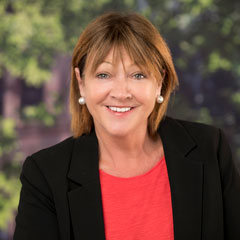
Margaret Sheehan
Chief Executive Officer
Leadership TeamMargaret Sheehan is CEO of ChildFund Australia. Prior to this role, Margaret spent four years as ChildFund Australia’s International Program Director, overseeing the implementation of projects in the Asia-Pacific region. Having begun her working life as a teacher and lecturer, Margaret’s commitment to working with young people led to her first international post with the World Health Organisation. Margaret now has over two decades of experience in managing international development programs and personnel in field office settings and has completed a Masters in Public Health.
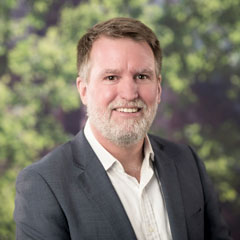
Adrian Graham
Deputy CEO, Operations
Leadership TeamAdrian is a values-driven leader and advocate committed to the protection of the rights of children. A qualified chartered accountant, Adrian has over eight years senior executive experience in Australia and internationally, most recently as Acting CEO, COO and CFO of UNICEF Australia, where he led the successful implementation of innovative systems across the organisation. Originally from Bulawayo, Zimbabwe, Adrian’s breadth of experience across different cultural contexts has allowed him to develop an assured and enabling leadership style that aligns to his sense of purpose and integrity. Adrian is Treasurer and board director of the Refugee Council of Australia.

Corinne Habel
Chief Development Officer, Fundraising and Marketing
Leadership TeamCorinne is a highly experienced director and executive with expertise in business development and fundraising in diverse not for profit organizations. She brings over 20 years’ experience in implementing successful and sustainable global strategies.
Throughout her career, Corinne has developed new and innovative fundraising, communication and business strategies from the ground-up which have been based on strong analytical research and planning skills and have resulted in significant revenue growth. She enjoys building relationships and developing and leading high performance teams. Corinne is thrilled to be part of ChildFund as she is passionate about improving the lives of children and the livelihoods of women facing poverty.
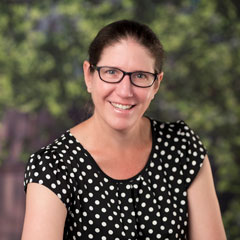
Sarah Hunt
Global Programs Director – Mekong & Grants
Leadership TeamSarah has almost two decades of experience supporting development and humanitarian programs in Africa, Asia, the Middle-East and the Pacific. At ChildFund, she is responsible for overseeing the design, implementation, monitoring and evaluation of programs which support vulnerable children, their families and communities and strengthen formal systems across the Mekong region. Sarah was formerly ChildFund’s Grants Manager and led the successful expansion of the organisation’s donor funding portfolio, including grants from the Australian and New Zealand Government aid programs, the European Union, USAID and the Global Partnership to End Violence Against Children. Prior to joining ChildFund, Sarah worked in London with a youth-focused organisation, working closely with communities and local partners in West Africa on urban slum development projects.

Amy Lamoin
Global Programs Director, Australia, the Pacific and Humanitarian Response
Leadership TeamAmy Lamoin is a Global Program Director at ChildFund Australia, where she is responsible for setting Pacific Strategy, co-leads the International Programs Team and has oversight for two Country Offices. A senior executive with fifteen years of professional experience in international aid, humanitarian response and human rights policy, Amy has held senior roles at UNICEF, the United Nations High Commissioner for Refugees, the United Nations Development Program and the Australian Human Rights Commission. She has applied experience in Australia, the Pacific, West Africa and the Middle East, with technical expertise in child rights, preventing gender-based violence, and in protecting minority rights.

Michael Rose AM
AmbassadorMichael has a long history in international aid and development having been the Chair of both ChildFund Australia and ChildFund Alliance. He is currently the Chair of the Institute for Global Development at the University of New South Wales. Michael is also the Chair of the Committee for Sydney and a member of the Board of the Westmead Institute for Medical Research. He has advisory roles with KPMG and UNSW and is a Fellow of the Australian Institute of Company Directors.

Annabelle Williams OAM
AmbassadorAnnabelle is a Paralympic Gold Medallist, international motivational speaker, lawyer, brand ambassador, board director, TV reporter and sports commentator. She is a strong advocate for the rights of athletes and, at the age of 24, was awarded with the Medal of the Order of Australia for her service to sport. Annabelle holds a number of international board and advisory positions and recently graduated from the Stanford University Graduate School of Business, where she delivered the Valedictory Address. Annabelle joined the Board in November 2019, took a leave of absence from May to August 2020 and is a member of the Communications and Marketing Committee.

Sonya Ryan
AmbassadorCarly Ryan was 15-years-old when she was murdered by an online predator. It was the first crime of its type in Australia, occurring in 2007 when social media was a new phenomenon and paedophiles were increasing their efforts to infiltrate the online space. Determined to help prevent harm to other innocent children and to help them navigate their online journey safely, Carly’s mum Sonya, shared her lived experience and incorporated The Carly Ryan Foundation (CRF) in 2010 creating an extraordinary legacy.
The Carly Ryan Foundation is broadening its efforts and is now established in the United States and will continue their advocacy to introduce Carly Law there whilst sharing valuable resources and crime prevention initiatives to benefit US citizens and children. This crime type is borderless, offenders can easily access their victims from anywhere in the world, exploiting them under a veil of privacy and anonymity.
Sonya has led efforts for over a decade in Australia to make her home country one of the toughest on online crime and harms. Australia is now an international leader in crime prevention.
Sonya’s lived experience of extreme suffering demonstrates the strength of a mother’s love connection with her daughter – the unparalleled power of love.

Danielle Cormack
AmbassadorDanielle Cormack is an award-winning actress who has an extensive career in film, theatre and television. She quickly came to prominence in Australia with performances in television series Wentworth, Rake and Underbelly: Razor. Her many film credits include Separation City and Siam Sunset, for which she received an award for Best Actress at the Fantasporto International Film Festival. A mother of two, Danielle sponsors Akulla Lona in Uganda and Srey in Cambodia. Having visited Vietnam, Cambodia, Kenya and Uganda to see ChildFund’s work first-hand, Danielle has seen the enormous difference that international aid programs can make to children living in the world’s most marginalised communities.

Emily Chancellor
AmbassadorEmily has been playing rugby since 2013. A club rugby player for Sydney University, she holds several representative titles and honours from her rugby journey so far, including two NSW 7s titles in 2014 and 2016; Sydney XV tiles 2015, 2016 and 2017 at the National Championships, captaining the Australian team for World University Games in 2016 and the Macquarie University AON 7s team in 2017 and 2018. Emily is now a valuable member of the Australian Wallaroos squad and took home the prestigious Buildcorp Player of the Year trophy in 2018 in her debut year. Emily has been named best forward for the NSW Waratahs in 2021 and 2022 and is off to the Rugby World Cup in October. In her working life, Emily is the Club Development Manager for Sydney University Sport and Fitness managing all the sports clubs and some of the Elite Athletes and holds a 1st Class Honours Degree in Education and a Master of Management both from Sydney University.

Aimee Sutorius
AmbassadorAimee has a passion for rugby, sport, health, fitness, and wellbeing. Representing both the Black Ferns and Black Ferns 7s, her career is now focused on educating students at university and, more recently, in rugby-specific roles as a coach and the Women’s High Performance Player Development Manager for Otago Rugby.

Amy Sligar
AmbassadorAmy Sligar is a professional Netballer, currently playing for the Giants in the Suncorp Super Netball. She is also a member of the Australian U21 squad. Amy is studying a Bachelor of Biomedical Science at the University of Technology, Sydney. She has a passion for championing children’s rights and wellbeing, as well as girls and young women empowered through sport.

Honey Hireme-Smiler
AmbassadorHoney Hireme-Smiler is one of New Zealand’s most talented cross-code female athletes, having represented the country in rugby union, rugby league and rugby 7s. Her career in NZ rugby league spans almost two decades, during which time she has captained the team on numerous occasions. Honey’s influence both on and off the field saw her appointed a Member of the New Zealand Order of Merit for her services to the game in the 2020 new year’s honours role. Honey now works as a disability sport advisor for the Halberg foundation.

Lauren Moore
AmbassadorLauren Moore also currently plays for the Giants and started playing at 5 years old. She has been a professional player since 2016, and has won two Premierships with the NSW Swifts, and then moved clubs to cross town rivals, the Giants in 2022. Lauren is passionate about helping others live a happy, healthy life. She is a Disability Support worker with the Whatability Foundation.

Mere Baker
AmbassadorBorn in Riverton, New Zealand, Mere debuted with the Aotearoa Māori Women’s Sevens in 2000. Since then, she has embarked on a career as an internationally renowned athlete and coach, playing professionally in Europe, Australia and in the USA. Mere returned to New Zealand in 2019 to take up the position of Women’s High-Performance manager with Rugby Southland. Mere also developed the Hapori Project, a coaching, cultural and life skills programme which includes the Hapori Festival, an initiative for rangatahi and their extended whānau.

Michael Pain
Chair
Board MemberMichael Pain retired from Accenture in 2015 as a Managing Director with Accenture Australia, having led major practice areas including Advanced Technology, Management Consulting, Strategy, Digital, and Analytics across various Asia Pacific regions. Michael co-led Accenture’s corporate giving activities, helping to initiate Corporate Citizenship for Accenture in Australia. Currently Michael’s activities include NFP Board membership, philanthropy, and ethical investment. Michael has a Bachelor of Science (Hons) from the University of Sydney and an MBA (Hons) from INSEAD in France. After a leave of absence living in Canada, Michael re-joined the Board in 2018 and is currently the Chair of the Board.

Lyndsey Rice
Vice-Chair
Board MemberLyndsey has over 15 years leadership experience gained across international markets and is currently the Chief Executive Officer of Children’s Hospital Foundation. She is experienced in strategic planning, fundraising, marketing, philanthropy, digital transformation and leading highly effective teams. Lyndsey’s career spans international development, social services, health, medical research and the arts and she is passionate about building inclusive, engaged, and inspiring cultures to achieve the best possible outcomes for the communities we serve. Lyndsey joined the ChildFund Australia Board in February 2022 and is a member of the Communications & Marketing committee.

David Shortland
Board MemberDavid is a governance advisor and communication counsel to boards and senior executives. He is a Board Advisor and facilitator for the Australian Institute of Company Directors (AICD) in Strategy, Risk, Board Effectiveness & Governance generally. He co-authored the first edition of AICD’s Good Governance Principles and Guidance for Not-For-Profit Organisations. David is a Fellow of the National Heart Foundation of Australia, having been a director of the Heart Foundation (NSW). He joined the ChildFund Australia board in November 2014, was Deputy Chair from 2017 – 2020 and is a member of Audit, Risk and Nominations and Communication & Marketing Committees. David is a director of the international board of ChildFund Alliance.

Tureia Sample
Board MemberTureia Sample is an experienced lawyer specialising in critical infrastructure, supply chain and governance projects particularly in the communications, transport, health and energy sectors. She is a partner at PwC, and previously held senior executive roles at SBS including Company Secretary and Director of Corporate Affairs. Prior to that she worked as a lawyer with Allens Linklaters (Sydney and Hong Kong). Tureia is a graduate of the Australian Institute of Company Directors. Tureia was born and grew up in Papua New Guinea and spent a number of years studying and working in Japan. Tureia joined the ChildFund Australia board in June 2021 and is a member of the Program Review Committee.

Lisa Hresc
Board MemberLisa is an experienced media, brand, and digital marketing strategist. Lisa has held executive leadership roles in Brand, Marketing & Communications across media, broadcast and in the not-for-profit sector for over twenty years. Currently Lisa is the Director, Brand, Marketing & Communications for The Benevolent Society. Previously held positions as the Strategic Business Director for Lee Media & Co, and General Manager, Marketing & Communications ABC Commercial and Head Corporate Marketing for Australian Broadcasting Corporation. Lisa completed executive MBA in 2011. She is a member of the Audit, Risk and Nominations committee and the Communications and Marketing committee.

Kobus Ehlers
Board MemberKobus Ehlers is an experienced leader in governance, risk and compliance with more than 20 years’ experience working and leading teams in large multinational companies across a range of industries and markets including Australia, Africa and Asia.
A Chartered Accountant by training, Kobus has a deep understanding of the challenges and opportunities that good goverance could bring to emerging economies.
Kobus joined the Board in March 2021 and is Chair of the Audit, Risk and Nominations committee.

Nancy Tchou
Board MemberNancy Tchou has a finance/law degree and over 15 years experience in investment banking, specializing in infrastructure mergers & acquisitions/investments. She is currently leading the superannuation fund efforts at a global investment bank – capturing the recent trend of superannuation funds fundamentally changing the investment landscape with its significant capital supply. Nancy has significant experience in local and cross-border projects and has led landmark, high profile government strategic reviews and privatisations. Nancy is a member of the Risk, Audit and Nominations Committee

Shantanu Paul
Board MemberShantanu has over a decade of experience in Social Entrepreneurship and International Development. He is currently the Managing Director of Leaders for Climate Action Australia, an organisation looking to drive urgent climate action with digital and technology sector companies and stakeholders. Prior to this, he has spent 6 years working in South Asia with Ashoka, the world’s largest network of leading social entrepreneurs. At Ashoka, he has led several key programs and advised over 500 social entrepreneurs across sectors such as human rights, healthcare, civic participation, and education. His work with social entrepreneurs has helped hundreds of innovations scale towards creating systemic change. Shantanu previously sat as a youth representative on the Board of Plan International Australia and has led several youth initiatives in Australia. He is currently sitting on the Program Review Committee.

Philippa Venning
Board MemberPhilippa Venning is Vice President at Abt Associates. Based in Canberra, she leads Abt’s technical team to provide quality advice and implementation across the breadth of Abt’s programs. Philippa leads DFAT-funded programs in women’s economic empowerment, governance and health across Asia and the Pacific.
Prior to joining Abt, Philippa worked for DFAT, the World Bank, United Nations Development Program, and several NGOs. Her most recent role at DFAT was Deputy Head of Mission in Timor-Leste. For DFAT and the World Bank, Philippa designed and implemented governance, service delivery and gender programs in Timor-Leste, Solomon Islands and Indonesia. She has spent 12 years working in the Asia-Pacific region in addition to over 14 years’ experience in Australia.
Before becoming a development professional, Philippa spent several years as a corporate lawyer working for Allens Linklaters in Sydney and Singapore.
Philippa joined the ChildFund Australia board in November 2023.

Yih Jeh (EJ) Teen
Board MemberYih-Jeh has over 15 years of global experience in strategic business and technology transformation working with large international organisations, ASX listed companies and not-for-profits. Currently, Yih-Jeh is the Product Manager Leader for the deposit portfolio at Bank Australia, and previously worked for The Fred Hollows Foundation as Head of Innovation and Save the Children Australia as Head of Strategy and Business Consulting. She started her career and worked for over 12 years with Accenture specialising in the Financial Services and International Development sector. Yih-Jeh brings a unique blend of business, innovation, digital, technology, strategy, organisational transformation and governance experience to the ChildFund Australia board.

Margaret Sheehan
Chief Executive Officer
Leadership TeamMargaret Sheehan is CEO of ChildFund Australia. Prior to this role, Margaret spent four years as ChildFund Australia’s International Program Director, overseeing the implementation of projects in the Asia-Pacific region. Having begun her working life as a teacher and lecturer, Margaret’s commitment to working with young people led to her first international post with the World Health Organisation. Margaret now has over two decades of experience in managing international development programs and personnel in field office settings and has completed a Masters in Public Health.

Adrian Graham
Deputy CEO, Operations
Leadership TeamAdrian is a values-driven leader and advocate committed to the protection of the rights of children. A qualified chartered accountant, Adrian has over eight years senior executive experience in Australia and internationally, most recently as Acting CEO, COO and CFO of UNICEF Australia, where he led the successful implementation of innovative systems across the organisation. Originally from Bulawayo, Zimbabwe, Adrian’s breadth of experience across different cultural contexts has allowed him to develop an assured and enabling leadership style that aligns to his sense of purpose and integrity. Adrian is Treasurer and board director of the Refugee Council of Australia.

Corinne Habel
Chief Development Officer, Fundraising and Marketing
Leadership TeamCorinne is a highly experienced director and executive with expertise in business development and fundraising in diverse not for profit organizations. She brings over 20 years’ experience in implementing successful and sustainable global strategies.
Throughout her career, Corinne has developed new and innovative fundraising, communication and business strategies from the ground-up which have been based on strong analytical research and planning skills and have resulted in significant revenue growth. She enjoys building relationships and developing and leading high performance teams. Corinne is thrilled to be part of ChildFund as she is passionate about improving the lives of children and the livelihoods of women facing poverty.

Sarah Hunt
Global Programs Director – Mekong & Grants
Leadership TeamSarah has almost two decades of experience supporting development and humanitarian programs in Africa, Asia, the Middle-East and the Pacific. At ChildFund, she is responsible for overseeing the design, implementation, monitoring and evaluation of programs which support vulnerable children, their families and communities and strengthen formal systems across the Mekong region. Sarah was formerly ChildFund’s Grants Manager and led the successful expansion of the organisation’s donor funding portfolio, including grants from the Australian and New Zealand Government aid programs, the European Union, USAID and the Global Partnership to End Violence Against Children. Prior to joining ChildFund, Sarah worked in London with a youth-focused organisation, working closely with communities and local partners in West Africa on urban slum development projects.

Amy Lamoin
Global Programs Director, Australia, the Pacific and Humanitarian Response
Leadership TeamAmy Lamoin is a Global Program Director at ChildFund Australia, where she is responsible for setting Pacific Strategy, co-leads the International Programs Team and has oversight for two Country Offices. A senior executive with fifteen years of professional experience in international aid, humanitarian response and human rights policy, Amy has held senior roles at UNICEF, the United Nations High Commissioner for Refugees, the United Nations Development Program and the Australian Human Rights Commission. She has applied experience in Australia, the Pacific, West Africa and the Middle East, with technical expertise in child rights, preventing gender-based violence, and in protecting minority rights.
Click on the profile to learn more
Swipe for more
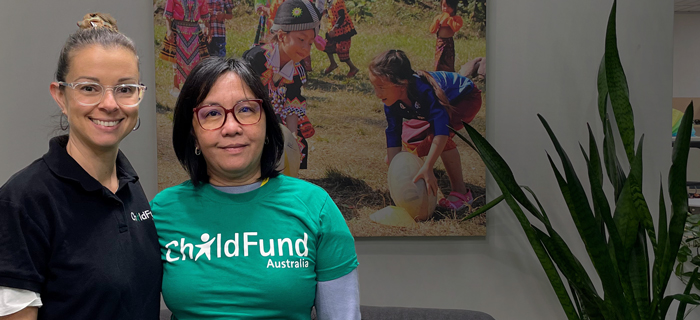
Our Staff
We have 362 employees from diverse backgrounds working across seven countries, 60% of whom are women.
Our Expenditure
Where your money goes
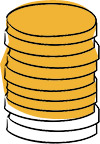
82 cents
in every dollar goes directly to helping children in poverty
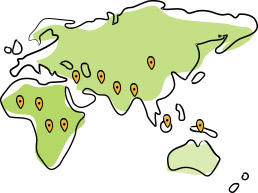


Nearly 36 million
children and families being supported in 70 countries


